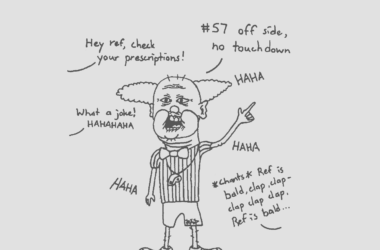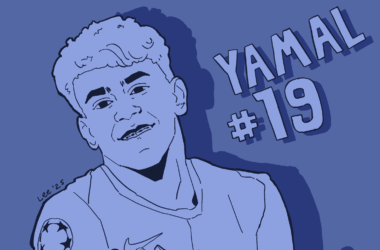In 2006, goaltender Rick DiPietro signed a 15-year $67.5 million dollar contract with the New York Islanders. Since then, he has missed most of the last three seasons due to injury, and has performed atrociously when he has played. Yet despite his injuries and poor play he will still make $4.5 million each year and serve as a large burden on the Islanders’ cap space. Like the NHL, the NBA and MLB are stuck with honouring guarenteed contracts. On the other hand, the NFL allows teams to cut players at will; the only guaranteed money for players are signing bonuses or bonus clauses built into contracts. If a player is performing poorly, that player can be cut without any compensation.
So the question arises: should the NHL and other leagues, in light of the multitude of bad signings, allow contracts to be unguaranteed and allow players to be cut without significant compensation?
The argument in favour of unguaranteed contracts is simple: if a player isn’t performing up to their contract’s expectations, why should a team have to be stuck with them?
However, when in sports do people get do-overs? It is the General Manager’s responsibility to accurately scout players and decide how much each player is worth. If a GM overpays for a player, it should fall on them. They shouldn’t be able to cut the player without compensation and be exempt from their mistake.
Teams like the Detroit Red Wings have become a powerhouse this past decade by signing players who were under the radar. Their stars, like Pavel Datsyuk and Henrik Zetterberg each made under $3 million (relatively cheap for their skill level) until fairly recently. If GMs and owners around the league really don’t like long-term contracts, then they should stop by collectively lowering the number of years they put on contracts. Of course, for big time players there are bidding wars that inevitably drive up the number of years and salaries. But again, if a player isn’t worth the risk, then there is nothing stopping the GM from not signing them.
Finally, there is the issue of injuries. While an injured player’s contract shouldn’t be counted against the salary cap, it is horribly unjust for the player to be cut without compensation. These athletes are at times putting their health at risk during their jobs, essentially fighting for their franchises. Therefore, the injured player who had previously earned the trust of a franchise’s management enough to be given a contract, should not be left out to dry.
While some may believe this argument is being overly sympathetic to athletes who make millions of dollars to play sports, consider these counter points. Firstly, it’s not like the owners of teams are going hungry because of bad contracts. The players are the ones that draw the fans, which generates the revenue, so they need to be given the respect of the guaranteed contracts they earn. Secondly, and more importantly, the players that are being cut are generally not the big name athletes. Instead, they are the ones who often are paid the league’s minimum salary and who’ve sacrificed a large portion of their lives to making it to professional sports. If they’ve earned a contract from a team, they don’t deserve to be given the boot.
Plus, much of sports media and humour comes with the terrible contracts handed out to mediocre players. Imagine if the Canadiens were given the chance to cut the infamous Scott Gomez and his $7.5 million contract. Where’s the comedy in that?
While fans may be upset that an overpaid player is weighing down their team, guaranteed contracts should be a part of the sporting world.
—Adam Taras







